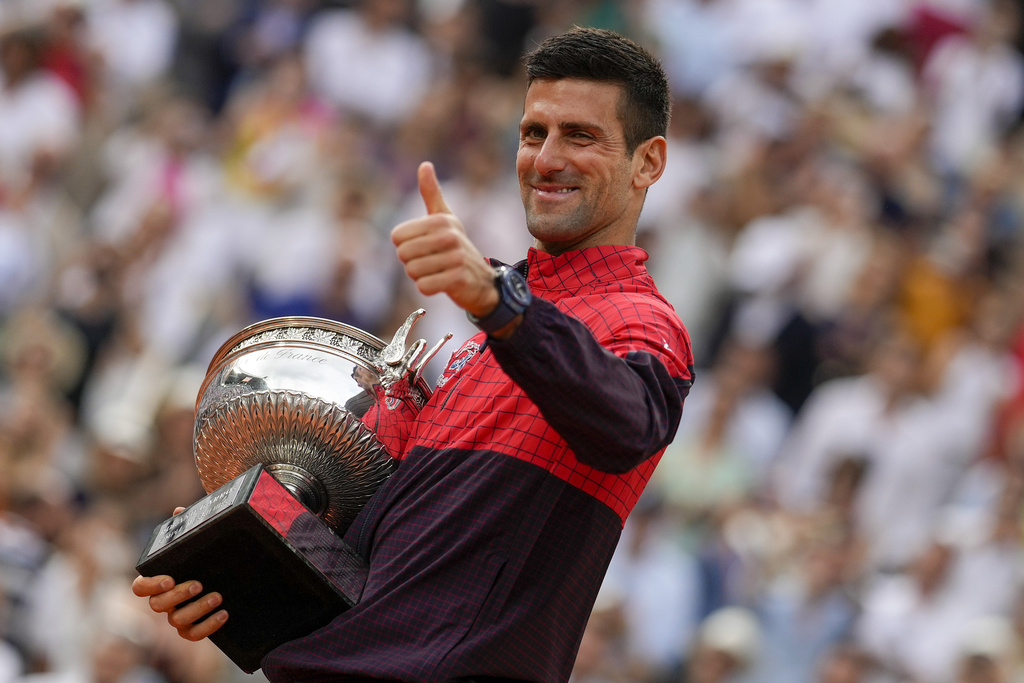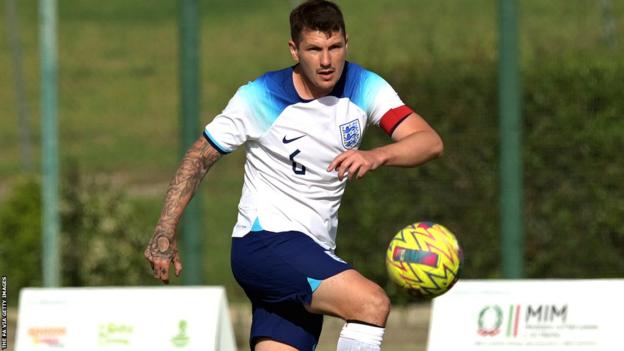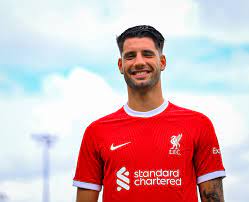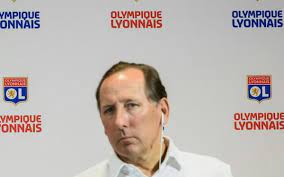Novak Djokovic experienced a profound realization as he witnessed Casper Ruud’s forehand veer off into the tram lines: he had just achieved a momentous milestone. By securing his 23rd grand slam title, Djokovic surpassed Rafael Nadal, solidifying his position as the greatest male player in tennis history. In an era marked by exceptional talent, spanning back two decades to Roger Federer’s initial grand slam victory, Djokovic has now eclipsed both his rivals.

His victory over Ruud in straight sets at the French Open not only marked his third title at Roland Garros but also made him the first man to win each grand slam a minimum of three times. Additionally, Djokovic reclaimed the top spot in the world rankings for the 388th week of his career, surpassing Federer’s 310 weeks.
When asked about his new status, Djokovic refrained from declaring himself the greatest out of respect for past champions from different eras. In his post-final interview, he stated, “I leave those kinds of discussions of who is the greatest to someone else.”
Djokovic’s dominance at Roland Garros was even more remarkable considering his challenging buildup to the tournament. While clay has never been his preferred surface, he struggled in the weeks leading up to the French Open, exiting early in three tune-up events and dealing with an elbow injury. However, upon arriving in Paris, his mindset shifted as he recognized the significance of the historical moment.

Goran Ivanišević, Djokovic’s coach, noted that his ability to switch gears during grand slams sets him apart. He likened the experience of playing a major tournament to a different sport altogether, emphasizing Djokovic’s mental agility.
During his final match against Ruud, Djokovic had the legendary quarterback Tom Brady, widely regarded as the greatest NFL player of all time, in his corner. Similar to Brady, Federer, and Nadal, Djokovic has proven that he can triumph at what is traditionally considered an advanced age for athletes. Although the 36-year-old acknowledged that his body responds differently to the demands of top-level tennis compared to five or ten years ago, his determination and passion remain undiminished.
With Wimbledon on the horizon, Djokovic announced that it would be his sole grass-court tournament in the coming weeks. His aim is to defend his title and continue his quest for a calendar grand slam, which involves winning all four majors in the same year. The last male player to achieve this feat was Rod Laver in 1969, and Djokovic came tantalizingly close in 2021, falling one match short.
Whether it occurs this year, next year, or beyond, Djokovic’s pursuit of grand slam titles seems poised to continue. As long as he remains free from significant injuries, it is difficult to envision anyone stopping the world No. 1 from adding to his impressive tally of 23 titles.
Ivanisevic marveled at Djokovic’s remarkable agility and precision on the court, noting his ability to seamlessly transition between defense and offense. Opponents like Ruud have recognized Djokovic’s near-flawless game, remarking that he rarely makes mistakes and either forces his opponents to go for high-risk shots or delivers winners himself.
Andy Roddick captured Djokovic’s impact in a succinct statement: “First he takes your legs, then he takes your soul.” This quote from the former world No. 1 perfectly encapsulates the effect Djokovic’s game has on his opponents.
Despite controversies surrounding Djokovic, he remains undeterred in his pursuit of tennis history. The drama that often accompanies him at grand slams fuels his motivation. Whether it’s making political statements or dealing
with past incidents, Djokovic’s unwavering focus on the court has allowed him to conquer all challenges. Alongside his 23 grand slam titles, he has also triumphed in every Masters 1000 tournament and the World Tour Finals at least twice.
Tennis journalist Ben Rothenberg believes that Djokovic’s exceptional numerical achievements make it difficult to argue against him as the greatest male player of all time. Any reservations about Djokovic’s legacy now rely more on subjective and emotional factors in the ongoing debate surrounding the GOAT (Greatest of All Time).
The question remains not if but when the most successful player in men’s tennis history will further enhance his record-breaking collection of grand slam titles.






